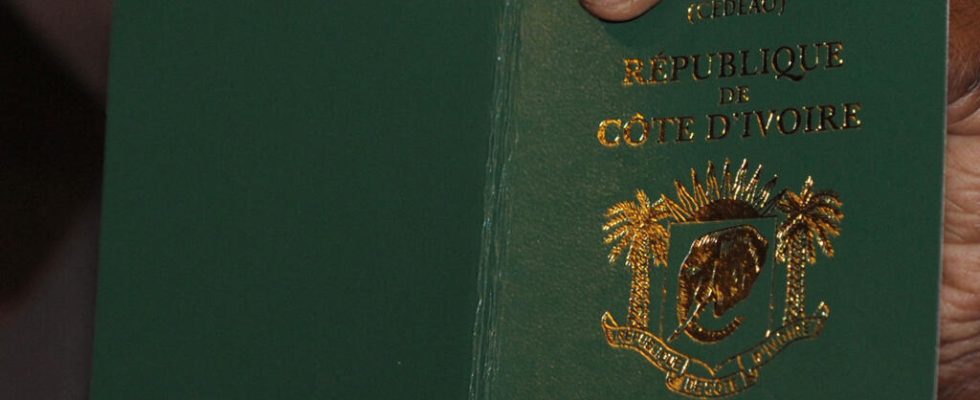After its discreet publication on Friday, December 29, members of the opposition and ordinary citizens had a few days to immerse themselves in reading the 91 pages of the “Definitive report on the execution of the finance law with a view to settling the budget of the year 2022”. Enough to raise a torrent of questions and even suspicions of corruption, particularly on revenues linked to the issuance of identity cards, residence and residence cards as well as passports.
2 mins
With our correspondent in Abidjan, François Hume-Ferkatadji
It’s a small line, in a small table, of a 91-page report which raises a wave of comments and astonishment on social networks. According to the Court of Auditors, the State of Côte d’Ivoire only collected 878,713 francs – or 1,338 euros – in revenue from tax stamps for passports and other identity cards, although issued against 40,000 and 5,000 CFA francs each.
How much does the actual amount of revenue collected by the ONECI and SNEDAI concessionary structures represent? And where is the rest of the money?, wonders the former PDCI senator, Jean-Baptiste Pany. “ All citizens are wondering. We had asked that the identity card be free, given the level of poverty in Côte d’Ivoire. The state said it could not make it free. So if the Ivorians paid 5,000 CFA francs, we all want to know what this money was used for. It is legitimate. »
In his report, “ the Court notes that the level of recovery of these duties and taxes is too low given the potential resources to be mobilized in this area “. It publishes the response from the Ministry of the Budget which indicates “ that the issuance of administrative documents and the related recoveries are no longer the responsibility of the Public Treasury. » An answer which is not correct according to the Court of Auditors, which specifies that, according to the agreements and laws in force, half of the rights to issue passports must be remitted every 10th of the month to the Public Treasury.
Furthermore, the Court of Auditors also examined in detail the accounts of the Treichville University Hospital Center between 2016 and 2020 and noted numerous “irregularities”.
